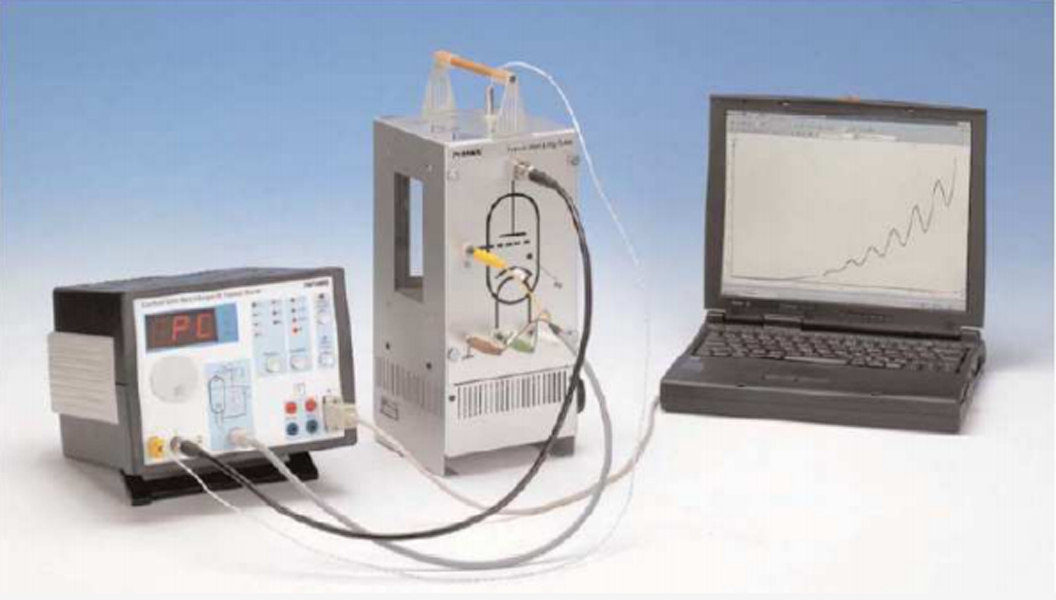Franck-Hertz experiment with a Hg-tube

Electrons are accelerated in a tube filled with mercury vapour. The excitation energy of mercury is determined from the distance between the equidistant minima of the electron current in a variable opposing electric field.
- Experience the essence of the Nobel Price: Franck, Hertz (1925)
- Classical Version with Mercury (Hg)
- One operating unit for 2 experiments (Hg, Ne)
- Precise determination of electron excitation energy of Hg
- Direct connection to computer, no extra interface necessary
Franck-Hertz Hg-tube on plate
Connecting cord for Franck-Hertz Hg-tube
Franck-Hertz oven for Hg-tube
Franck-Hertz control unit
Thermocouple NiCr-Ni, -50..1100°C
Software Measure Franck-Hertz experiment
Data cable, plug/ socket, 9 pole
Converter USB – RS232, active
Screened cable, BNC, l = 750 mm
- To record the countercurrent strength Ι in a Franck-Hertz tube as a function of the anode voltage U.
- To determine the excitation energy E from the positions of the current strength minima or maxima by difference formation.
- Energy quantum
- Electron collision
- Excitation energy
